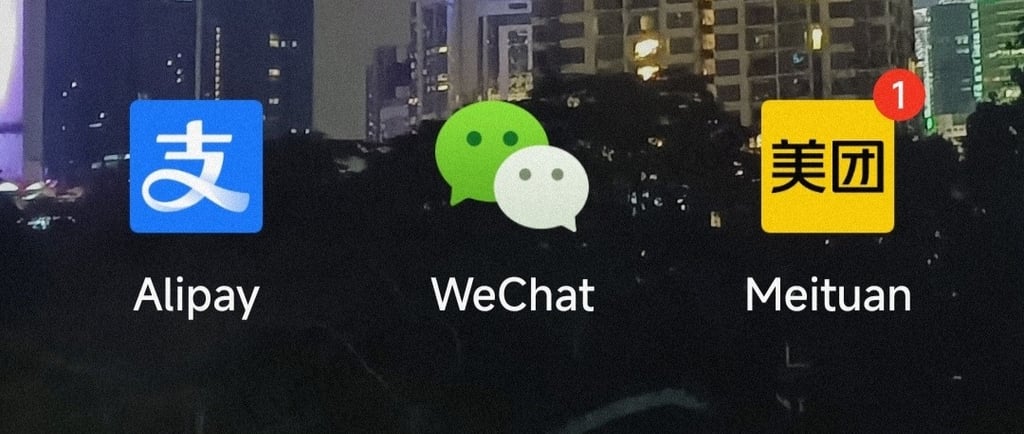App user Test
How many apps do you have on your smart phone?
Neville Edwards
6/30/20244 min read


App user Test
Apparently, we need an app to get anything done these days. But is that true? Well it's not hard to prove or disprove. The app experience may be the same for many of us and different for others so I have decided to test the theory on myself.
Like anything, there are preconditions to be eligible participants in the let's call it the 'App User Test'. The first condition is that you have and use a smartphone. Secondly, you need an internet connection and last but not least you need to be registered with an App Store to download these sometimes menacing software applications that sit on the screen of your phone until you either use them or delete them. I should also mention that your smartphone comes preloaded with some apps even before you unbox your new device.
So how many apps do you need and how many apps do you want? Not an easy question to answer. In my case I have 89 apps on my smartphone including 13 that came pre-installed. How many of these apps do I need and how many of these apps do I want? It turns out that we are cornered into using some of these apps even if we don't want to. Using what I am calling a 'look back test' I have examined my app use over the last 7 days to try prove or disprove the legitimacy of these apps on my screen. The device keeps showing pop-up messages saying the apps are heating up the phone ,depleting the battery (and possibly sending my personal data to the highest bidder).
Now, lets conduct the look-back test. I have decided to use a sample of apps that I use frequently as a starting point. Alipay is a vital app in my daily life. Bank accounts are linked to this app. This app provides a suite of functions including storing money balances like a wallet except that it's digital. It is a payment app that executes most of my transactions. I have not carried a wallet or any cash in the last 5 years. Alipay also has a suite of other functions, features and links to third party service providers which makes it one of the two super-apps in China. WeChat is the other super-app which I have on my screen next to Alipay. WeChat as the name suggests started off much like Whatsapp as a media messaging app but is now the number 1 payment app in China. WeChat also hosts countless cloud based third party sub-apps called mini-programmes that users can subscribe to. Moreover WeChat is used as the primary mode of communication in business alongside another app named QQ. People in China do not check email, they check QQ and WeChat. Only for very large files would users reluctantly log into QQ mail to extract and download. It may sound unbelievable to users in the West but email is simply not popular in China for default use. I have not sent a single email related to work for the last five years. Everything is done on WeChat. However, convenience of WeChat and Alipay also come at the expense of your privacy and freedom some may argue. Every user has a behavioural user activity based credit score on these two super-apps that can either reward your use of services through the app or restrict your access to services. To illustrate this, I will use a simple scenario. It's hot outside. You are thirsty. There is a self-operating drinks fridge nearby that allows you to choose a cool drink and walk away simply by scanning a QR code by using WeChat. However, if your user behavioral score is less than say 625, then the fridge will not unlock. No drink if you have not been a good boy or girl. The same applies to renting a battery charger, a bicycle, or even an e-bike.
I have only tested two apps so far. How about the other 87? While writing this blog, it did not take long for me to realize that testing 89 apps would turn this lighthearted blog into a research thesis. So I have grouped all the other apps into categories in the best interest of the readers. The list includes multiple banking apps, transport apps, news media apps, learning apps, translation apps, and a few restaurant apps. But still, what is the legitimacy of keeping all these apps? To answer this question I decided to apply a "look-forward test". It's simple: I asked myself, "Which of these apps would I have to re-install in the next 7 days if I deleted them today? Out of 89 apps I would have to re-install about 60 if I deleted all 89. That is about two-thirds of the apps. Why is that? It seems that the app developers have us hooked and committed.
If I delete my banking apps, then transactions cannot be easily authenticated. Communication and transaction ability is cut off if you delete the super-apps like WeChat and Alipay and so on. All of these apps have been designed with built-in user retention mechanisms. Just like we depend on the internet and screens for connectivity, so we have to get permission through our apps to get things done.
For now, there is no end in sight for the human vs. app condition...apparently.
Until apps are dethroned from our screens by some other higher-order advances in technology, I recommend look-back and look-forward tests. Every once in a while you can look back and delete the apps you have not used for the last 7 days, the ones you are least likely to re-install in the next 7 days.
hAppy deleting.
#App_user


